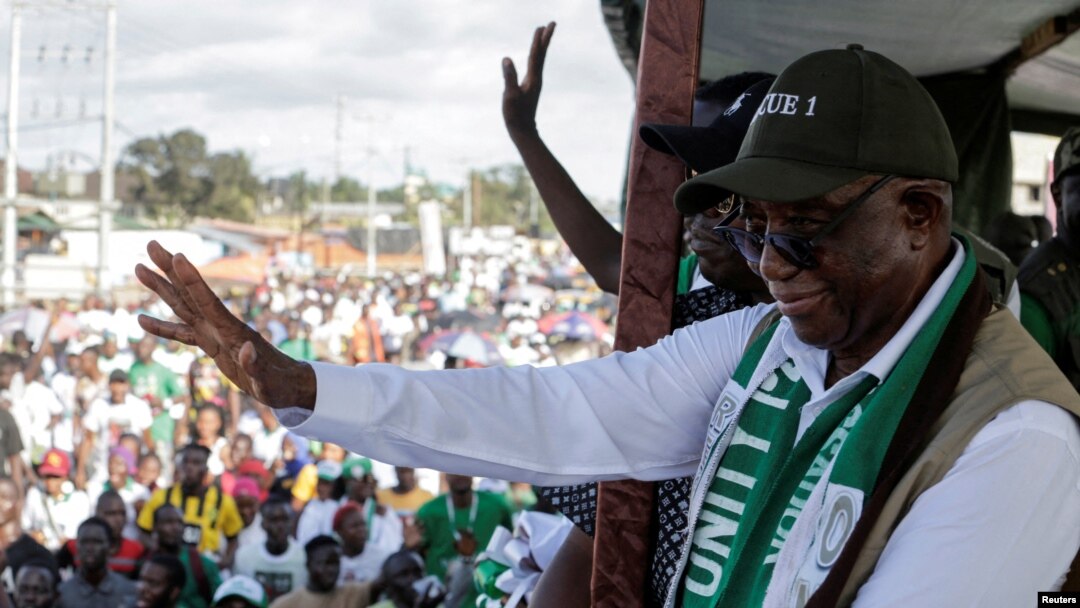Boakai's victory was sealed after the incumbent conceded defeat late Friday and left the streets of the capital, Monrovia erupting in celebration.
Boakai's win marks the high point in a long career, much of it spent within touching distance of power, including 12 years as vice president under Weah's predecessor Ellen Johnson Sirleaf.
He lost in a run-off vote to Weah in 2017.
Supporters say the president-elect's hard work, humility and experience are what voters want after six years of Weah rule that initially brought hope, fame and glamor to the presidency but were marred by corruption and administrative chaos.
"Boakai strikes me as a grandfather figure – someone you would trust with your life. And now we are trusting him with the country's life," said scholar and activist Robtel Neajai Pailey.
The 78-year-old leader faces a huge task to rebuild Africa's oldest republic which was founded by freed slaves from the Americas in 1822 but has struggled to emerge from two civil wars that killed more than 250,000 people between 1989 and 2003, and from a 2013-16 Ebola epidemic in which thousands died.
The economy grew by 4.8% in 2022, driven by gold production and a good rice and cassava harvest, but more than 80% of the West African country's population of 5 million still face moderate or severe food insecurity, World Bank data shows.
Drug use is on the rise among the jobless youth, officials say. Power supply is unreliable across the forested countryside, and pitted roads hinder travel.
Last year Liberia was ranked poorly on Transparency International's corruption index, coming in 142nd rank out of 180 countries.
Tuesday's run-off came after a tightly fought first round in October, in which neither candidate passed the 50% of votes needed to win outright.
Official results on Friday showed Boakai had 50.9% of the vote over Weah's 49.1%, with more than 99% of votes counted, prompting Weah's concession.
In an interview shortly after the results, a softly spoken Boakai told Reuters that his primary focus would be to bring the country together after a divisive election.
"First and foremost, we want to have a message of peace and reconciliation," he said.
Amara Konneh, Boakai's spokesperson, told Reuters on Friday that the president-elect would focus initially on education, health, agriculture and the economy, including reining in debt.
"He will give our people hope. He will fix the economy so everyone’s life will improve," he said.


